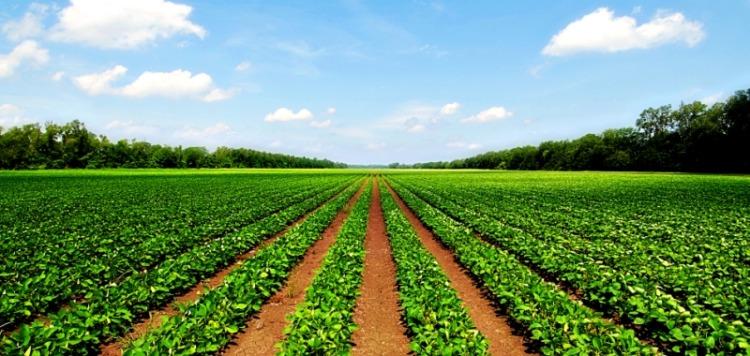The memorandum of understanding on agriculture cooperation between Rwanda and the Central African Republic (CAR) which was signed last week on Friday, offers a world of opportunities for peoples of both countries, according to the Rwandan Minister of State at the Ministry of Agriculture and Animal Resources
In an interview with a local media outlet on Tuesday September 7 2021, Jean Chrysostome Ngabitsinze said their agreement of understanding with the Central Africa Republic that was signed in Bangui, covers many agriculture-related areas in a bid to utilize the available arable land in CAR.
Some of the areas that the Rwanda government is looking to explore in due agreement date are; research in agriculture, land use and management, soil and water sustainable management, seed development to produce quality and highly productive seeds the advancement of the sector, crop and environmental protection, climate change adaptation, aquaculture and fishing, as well as agribusiness and agro-industry.
Ngabitsinze says the MoU covers a period of five years, but indicated that it is renewable based on the progress registered in the initial period.
Central Africa Republic economy largely depends on agriculture but due to increased cases of insecurity in the region has prompted to its under development for years now.
“I would say that CAR is somehow amazing in terms of natural resources. It has about 30 million hectares of arable and fertile land, while it has a relatively small population of five million,” Ngabitsinze said.
In other words, having land for large scale production in CAR presents a huge opportunity for Rwanda which has small land with agriculture production largely small scale, a situation that results in small profits.
This will go a long way in providing employment opportunities to Rwandan professionals who in accordance to the MoU will work in CAR to help develop its agro-industry.
So far, he said, CAR has provided 70,500 hectares to Rwanda, which are ready for use, adding that they are under the management of Crystal Ventures – a local Rwandan company which is the parent of the agro-processing firm Inyange Industries, among other firms.
Potential value chains
According to Ngabitsinze CAR has nine major agriculture commodities for which it has made a development plan, adding that Rwanda is currently assessing how the two countries can partner.
The agricultural commodities are; groundnuts, which was allocated an area of two million hectares, wheat sector, with three million hectares, cotton textile sector that is allocated two million hectares, and palm oil sector with production area of three million hectares.
Others are corn (maize) sector which was allocated three million hectares, rice with an area of five million hectares, sugarcane sector allocated three million hectares, the onion sector allocated one million hectares, and the tomato sector allocated an area of one million hectares.
With Central African Republic lacking a tomato processing factory, Rwanda will be looking to take up the opportunity hence generate more labor for its citizens.
While commenting on the cotton textile sector the Minister of state at the ministry of Agriculture and Animal resources said that the Rwandan government had started developing the sector, with some old plantations still in existence, noting that its performance was impaired by the civil war that ravaged the country.
The cotton sub-sector will once explored will see Rwanda develop its textile industry whose progress has been facing a lack of raw materials.
Citrus sector
With the identified fruit value chains which include lemon, tangerine, orange, and grapefruit sectors, CAR wants Rwandan business operators to set up a citrus fruit processing factory soon as fruits are abundant in the country.
Livestock development
With the Central Africans known of their love for Meat, there is lack of it in the country, with most that is consumed in the region mostly imported from Chad.
However, the country is setting up a programme to address the issue through developing the poultry sector among others.
ALSO READ: Uganda’s Oil and mining sector registers improved ratings
In poultry farming, the programme aims to produce 2 billion chickens in 10 years, including 1.3 billion broilers, 500 million layers which will produce 15 billion eggs in the long term, and 200 million roosters.
In cattle industry, the programme aims to increase cattle production to 10 million heads within 10 years as well as increasing the production of goats to eight million heads within 10 years.
According to the minister of Agriculture and Animal resources, CAR has a programme of creating an agriculture bank, in which it expects investments amounting to more than $25 billion over the next 20 years. The country is looking ahead to start with a capital of $2 billion.
This bank, he said, could be important to the growth of the agro-industry in the country through promoting investments into the agriculture sector by providing it with tailored financial products.
